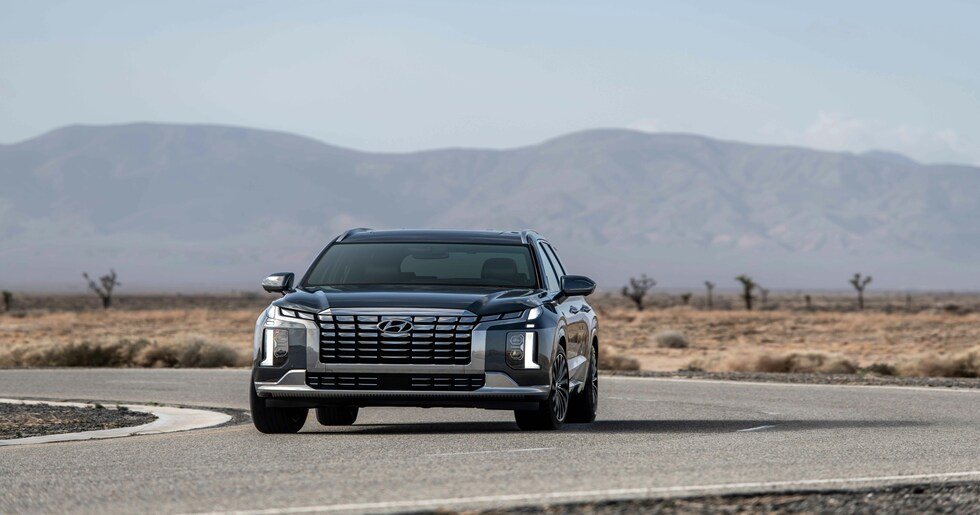How to Secure the Best Loan for Your New Vehicle
Published on August 27, 2024By Sergi C. (Contributor)
Contents


While purchasing a new automobile is always thrilling, it definitely come with considerable monetary considerations. Anyone else be minding their business, living life then boom the next minute you thinking how you gunna pay an auto loan? Your loan terms could weigh heavily on your finances, dictating monthly payments and even the overall price of your vehicle. The key to getting the highest quality loan is being informed, prepared and strategic. In this post, were going to show you how Tuscaloosa car shoppers can make sure they get the best loan for a new vehicle and avoid some of the more common auto finance mistakes.
1. Review Your Financial Standing
Another important step is checking your financial circumstances before you talk to a vehicle dealer. Knowing what your budget looks like, credit score and overall financial heath will help you determine how big of a loan you can take on as well as what kind of terms are realistic for you.
- Set Your Budget: Determine how much you can afford to pay for a car, including monthly payments, insurance and maintenance. The general rule of thumb is to spend no more than 15% of your take-home pay on monthly vehicle payments.
- Credit Score: Also, credit score is another important factor when it comes to the interest rate that you are going to get. Credit scores are used by lenders to gauge how much of a risk it is in order to lend you money, and the higher your score usually means lower interest rates. These tips are all well and good with one slight issue: without a copy of your credit report from at least Experian, Equifax or TransUnion you have no idea where to even start. Keep reading for three pointers you must know about that everyone confronting bad credit should do next if they want access to the same results my father hadscores! If your credit score is less than stellar try to bump it up a little before you apply for loans.
- Enter Your Down Payment: As we covered in the beginning, you will owe less cash to finance if your down payment is more extensive which might help lower a monthly plan and lessen how much interest an individual pays over time. Try to come up with at least 20% of purchase price in down payment if you can.
2. Shop Around for Lenders
There are a variety of benefits that come from using your car title as collateral for an installment loan but you should take into account how high the interest rate will be. Lenders offer different terms, but spending the time to find a lender with better rates can save you thousands of dollars over the life of your loan.
- Explore Various Lenders: Whenever it comes to auto loans, you are allowed several varieties of selections such as banks, credit unions and online lenders. Different Types of Lenders: Each type has their strength and weakness.
- Traditional banks typically provide high rates, especially to customers with strong credit histories. But their loan approval processes are generally stricter.
- Credit Unions: Credit unions tend to offer lower interest rates than banks, especially for their creditworthy members. And they are usually more relaxed on lending policies as well.
- Online Lenders: They offer convenience and fast approval procedures. They frequently target a broader array of credit scores, but you should shop rates to make sure you are having the best deal.
- Dealer Financing: Dealers can offer loans from multiple lenders, which makes them easy to shop for the best rate. And, the interest rates at dealerships can be higher than what you might qualify for from a bank or credit union so compare options.
- Pre-Approved: Before you shop for a car, think about getting pre-approved for an auto loan. Pre-approval will let you know how much of a loan and what interest rate youre approved for, giving you all the information needed to negotiate with the dealer. It also shows the dealer that you are serious, which can provide leverage in haggling.
3. Compare Loan Offers
You need to compare the loan offers from lenders once you have got a few. This will give you an idea of how much the loan will actually cost (monthly payment) as well as its total costs over the life-time of your car.
- Low Interest Rates: The interest rate or the annual percentage rate (APR) is one of the major factors responsible for deciding how much you are going to pay towards your loan. Even just a few percentage points in difference can equate to thousands of extra dollars over the course of your loan.
- Assess Loan Terms: While loan lengths usually fall between 36 and 72 months, others come with terms as short as 24 months or long lifespans of up to five years. So while lengthier terms could result in smaller monthly payments, they can also mean an increased total of interest paid. Instead, you should choose a term as short as you can while still comfortably making the payments.
- Fees & Penalties: You want to check if there are any specific fees that come alongside the loan such as origination, application or prepayment penalties. Prepayment Penalties: Prepayment penalties can offset any savings from refinancing or early repayment by charging you for paying off your loan before the term is set to end.
- Look for value-added Benefits: Some lenders offer additional perks such as discounts on setting up auto pay, rate reductions based on a clean driving record or the power to push off payment in case of an emergency. These benefits can effectively change the valur of a loan and one offer my be more attractive than another due to these.
4. Negotiate the Loan Terms
Most folks don't know it, but loan terms—just like the price of the car itself — are nationalized too. Do not hesitate to demand better conditions
- Negotiate the Interest Rate: If you have good credit or already got pre-approved elsewhere, use this as leverage to negotiate a lower interest rate. Lenders are hungry for your business, and they will do whatever it takes to beat or match the offers of their rivals.
- Still, this is something that you should talk about with your lender in the case of personal loans as longer terms come down to mean less interest but more overall. The lender offers you a long-term loan, but ask for more favorable rates in the short run.
- Barter the Down Payment: Try haggling with your lender if you can't muster up a 20% down payment consecution. It is possible that certain lenders will agree to lower the down payment (but only, depending on your credit).
5. Close the Loan and Buy Your Car
With the best loan offer in hand, you can now close on your new car and purchase it.
- Read the Loan Agreement Thoroughly: Before you sign it, go through your loan agreement completely and make sure everything agrees with what was negotiated. Be sure to carefully examine the interest rate, term of loan and potential fees/penalties.
- Finalize the Loan: Once you have signed your agreement, the lender will distribute it either directly to dealership (or alternatively in case of a private seller, to you) You can then sell the car, by doing all these things: closing at sale and transferring a title.
- The lender offers a discount for automatic payments, set it up as soon as possible. This can help you avoid all late fees and build a good credit score.
6. Refinance down the Road
You may be accepted for a refinancing deal and obtain a new interest rate if: Interest rates fall or your credit score improves after you originally purchased the loan Refinancing can lower your monthly payments or shrink your total loan term, which saves you money in the future.
Conclusion
Getting the best loan for your new car can take some planning, research and negotiation. Know your financial situation, compare loan offers from multiple lenders and negotiate for better terms to keep the cost of financing down and make buying that new car less pricey. The tip to get the great offer, do some research, take your time and negotiate better terms. Through the proper maneuvers you will walk away in your new car feeling as though no one could have sucked any extra money out of you for their financing.





